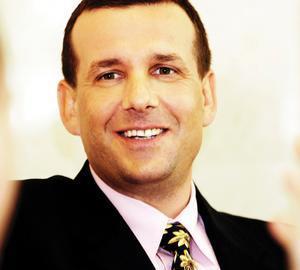In 1999, building services engineer Stefan Desormeaux upped sticks and emigrated to Australia, where he now works for consultant Napier & Blakeley as Principal Services Engineer. BSj spoke to him about life as a building services engineer Down under. In association with Ferroli.
Why Australia?
It offered a new challenge and a completely new way of working and living.
Was it difficult to move your life to another continent?
Three months with a suitcase! Once you pack up and watch the removals truck move off, you know you may not see your possessions again until you move into a new house months later. When you finally get all of your possessions back, you quickly realise how much of them you don’t really need. The best thing about moving was that it was the only time in my life that I did not have a house or car to worry about. It was an ideal time to do some travelling so I spent two months in Europe and Asia – fantastic!
Was it easy to find work?
It was relatively easy but it wasn’t quick. I think that it would be prudent to allow three months to find work.
What is the construction market like in Australia and NZ?
While the Australian market is not as heated as last year it is still relatively busy in the commercial and industrial sectors, with residential activity falling away in most states except Queensland. In terms of building services, all areas from building management to design consulting are buoyant with all areas seeking good quality engineers.
Are service engineers in short supply at the moment?
Services engineers are very difficult to source. After a year of trying, Napier & Blakeley advertised in BSj in January. We found a suitable candidate very quickly from the UK and he started in our Sydney office in July.
What sort of work experience can you get in Australia that you cannot get in the UK?
Many of the buildings that we visit that are out of the regional centres, especially on islands, are completely self sufficient in that they have their own power generation, drinking water treatment plants and sewerage treatment. I can’t remember seeing this in the UK.
What advice would you give to anyone trying to find a job?
Contact your CIBSE chapter chairman as soon as you can – they will know lots of people in the industry and who is looking for staff. They will also have a good idea of salaries, which will ensure that you don’t get taken advantage of. I wish that I had had this advice when I moved to Australia.
What was the biggest difference you found at work?
The first two buildings that I surveyed in Brisbane were multistorey office buildings. Being green from London, I spent half a day looking for the boiler house, not understanding that there was very rarely a heating requirement and if there was, it is catered for by small electric heater banks! Seriously though, my training in England had taught me to be energy-driven in my design and operation techniques. In my view this was based on the cost of energy in the UK. In Australia, energy is about one third of the cost so that it is not given as high a priority. I would like to see this change.
Are the Building Regulations etc significantly different?
Building regulations are very similar. Generally, Australian Standards are based on British Standards with changes to cater for climatic differences. Some states also have differing regulations, which can take a little getting used to when you are travelling extensively between states.
What are the highlights of working Australia?
Two things: first, due to the nature of my job, I am fortunate enough to have travelled all over Australia and New Zealand; and second was being commissioned to undertake a survey of the Sydney Opera House
Are there any other countries you would like to work in?
I would love to work in China. I have been studying the language for some time and have been introduced to the culture. I think that to be part of a developing nation would be great to experience.
What do you miss about England and Will you be returning?
Apart from my family, I miss curry, pubs and historic buildings. But I don’t think I will be returning in the foreseeable future. Life is good here, even if the geographical isolation and time difference can be a hurdle.
Source
Building Sustainable Design





















No comments yet